Turn any article into a podcast. Upgrade now to start listening.
Premium Members can share articles with friends & family to bypass the paywall.
You’re reading The Morning Dispatch, our flagship daily newsletter explaining all the news you need to know today in fewer than 10 minutes. To unlock the full version, become a Dispatch member today.
Happy Wednesday! Ahead of a meeting with various Hollywood celebrities, Pope Leo XIV said in a video that his four favorite films are Frank Capra’s It’s a Wonderful Life, Robert Wise’s The Sound of Music, Robert Redford’s Ordinary People, and Roberto Benigni’s Life Is Beautiful. Conspicuously absent: Conclave.
Quick Hits: Today’s Top Stories
- More congressional members returned to Washington, D.C., on Tuesday ahead of an upcoming vote on a bill to temporarily fund the federal government. While the House of Representatives was not in session on Tuesday for Veterans Day, the lower chamber is expected to hold a vote as early as today. Republican Speaker Mike Johnson called for House members to return on Monday after the Senate voted 60-40 to pass a continuing resolution bill to fund the government through January 30. He also announced that he would swear in Democratic Rep.-elect Adelita Grijalva of Arizona today. While Grijalva won a special election on September 23, Johnson delayed seating her during the government shutdown.
- The U.S. Navy announced Tuesday that the USS Gerald R. Ford—the naval fleet’s largest and most capable aircraft carrier—had entered U.S. Southern Command jurisdiction, which encompasses land south of Mexico, waters around Central and South America, and the Caribbean Sea. The carrier had been stationed in the Eastern Mediterranean, but Defense Secretary Pete Hegseth in late October ordered the ship to rebase off the Latin American coast. At Hegseth’s direction, according to the Navy’s news release, the carrier and its broader strike force group will work to “dismantle Transnational Criminal Organizations and counter narco-terrorism” in the region. In response, Venezuela announced a “massive mobilization” of soldiers, weapons, and other military resources to counter what the country’s defense minister, Vladimir Padrino López, described as an “imperialist threat.”
- The Supreme Court on Tuesday night extended an order temporarily blocking a federal district judge’s ruling that required the Trump administration to distribute all Supplemental Nutrition Assistance Program (SNAP) benefits in November. The extension will expire after November 13, but those two days offer time for Congress to pass a temporary government funding bill, thereby making the legal matter largely moot. Justice Ketanji Brown Jackson opposed issuing the extension. Jackson had first issued the temporary order blocking the lower court’s decision on Friday night, pending an appeals court’s ruling on the merits, which affirmed the district judge’s order on Sunday.
- World leaders gathered in Belém, Brazil, on Tuesday for the second day of this year’s United Nations Climate Change Conference, also known as COP30. The Trump administration did not send a U.S. delegation to the conference, but California Gov. Gavin Newsom did attend. While leaders agreed to a planned agenda for the conference, it did not include consideration of tariffs and other trade restrictions, and Brazil proposed forming a new conference, the Integrated Forum on Climate Change and Trade, to address such matters. Days before the conference, Brazil announced a multi-billion-dollar forest conservation fund, which the government plans to have operational within one year. Indigenous protesters broke into the conference and physically clashed with security guards, with two guards sustaining minor injuries.
- Major League Baseball said on Monday that it directed the league’s designated sports betting operators to cap bets on individual pitches at $200 and bar their use in parlays. On Sunday, federal authorities announced charges against two Cleveland Guardians pitchers, Emmanuel Clase and Luis Ortiz, including conspiracy to commit wire fraud and money laundering. The pair is accused of being involved in a betting scheme with sports gamblers in which they would rig in-game pitches for cash bribes. The players’ legal representatives have denied the allegations. Ortiz, who was arrested on Sunday, was released on Monday on $500,000 bail and is scheduled to be arraigned today.
A message from The Dispatch
Stay Ahead of the Curve With Dispatch Energy
The Dispatch’s newest weekly newsletter, presented by Pacific Legal Foundation, explores the politics, policy, and innovation shaping America’s energy future. Featuring a rotating roster of contributors who are experts in their respective fields, each edition features incisive analysis on everything from oil and gas and permitting regulations, to renewables, climate, and the grid.
Art of the Deals
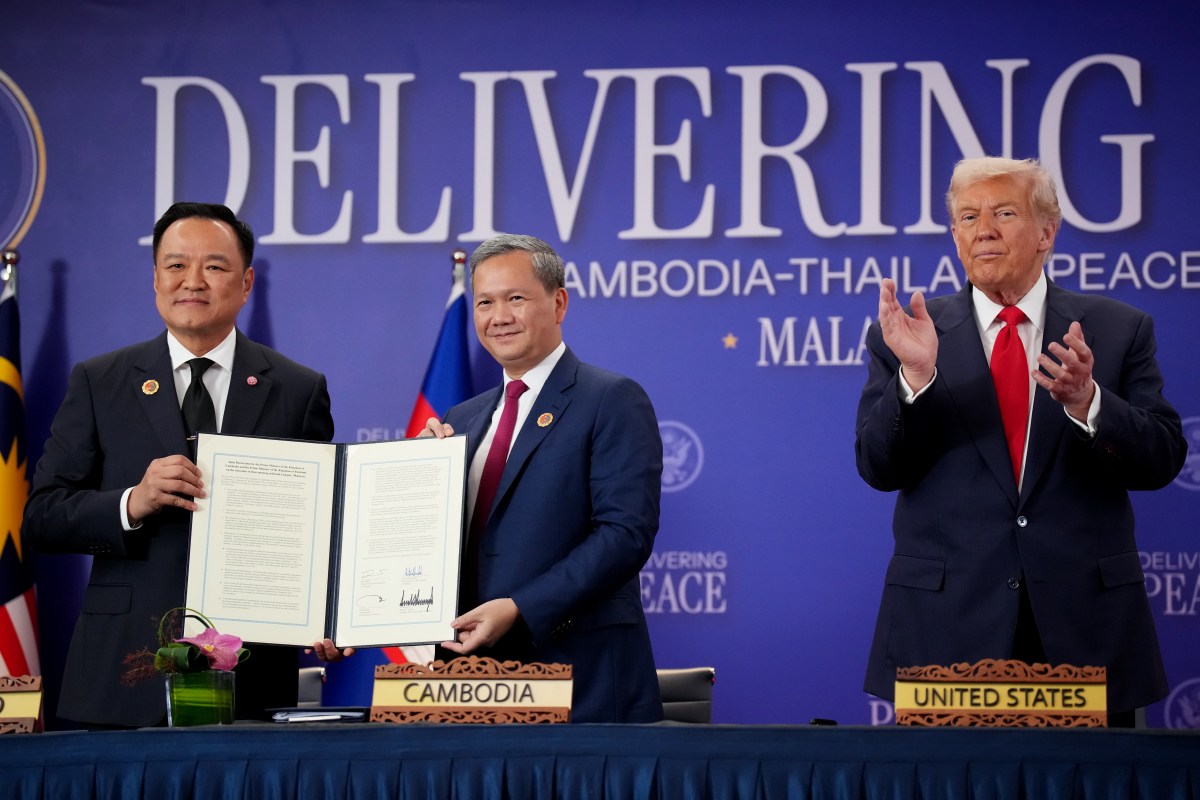
President Donald Trump is the “PRESIDENT OF PEACE.”
At least according to the U.S. State Department, which last month posted an image purporting to show the eight conflicts Trump has ended in eight months: Cambodia-Thailand, India-Pakistan, Israel-Hamas, Israel-Iran, Kosovo-Serbia, the Democratic Republic of Congo (DRC)-Rwanda, Egypt-Ethiopia, and Armenia-Azerbaijan. No mention of the Russo-Ukrainian war—which Trump promised to end within 24 hours of his return to office but which continues with no end in sight—nor the president’s increasingly aggressive campaign in Venezuela.
But how accurate is the list?
You are receiving the free, truncated version of The Morning Dispatch. To read the full newsletter—and unlock all of our stories, podcasts, and community benefits—join The Dispatch as a paying member.
Two of the listed “wars” never reached the fighting stage, and Trump’s claim appears to be about preventing war from starting. Tensions spiked between Egypt and Ethiopia earlier this year over the construction of an Ethiopian dam on the Nile, which Cairo claimed would threaten its water supply. But the two countries never fought. And despite renewed strain between Kosovo and Serbia, the Balkan countries have not been at war—nor on the precipice—since Trump’s return to office.
By contrast, the war between Israel and its enemies has recently stopped but could be poised to return to open conflict. While a much-touted White House peace plan led to the return of Israeli hostages and the release of Palestinian prisoners, Israel is currently threatening to resume hostilities in the face of intransigence by Hamas related to other provisions of the deal, including the terrorist group’s disarmament. Both Israel and Iran are also reportedly preparing for another, more intense, war in the near future, as Iran rebuilds its ballistic missile stocks.
In the four remaining wars, the U.S. was publicly involved in ending hostilities, often arranging high-profile diplomatic summits to broker agreements between belligerents—but they haven’t been as solid as the White House claims.
In July, Cambodia and Thailand engaged in a series of deadly cross-border attacks over territorial disputes, which left dozens dead on both sides over the course of five days. On the third day of the conflict, Trump claimed that he called the leaders of each country, saying he would terminate ongoing trade negotiations with each country until “the fighting STOPS.”
Both sides then met in Malaysia for talks mediated by Malaysian Prime Minister Anwar Ibrahim, and on August 7, agreed on a framework for the cessation of hostilities. That same day, Cambodian Prime Minister Hun Manet nominated Trump for the Nobel Peace Prize, writing that his “visionary and innovative diplomacy” had “averted a potentially devastating conflict.”
Manet, his Thai counterpart, and Trump formalized the deal during his recent Asia trip, on the sidelines of the Association of Southeast Asian Nations summit in Kuala Lumpur, standing in front of a backdrop that read “DELIVERING PEACE.”
The delivery, however, is delayed. On Monday, Thailand paused implementation of the peace agreement following a border landmine explosion that wounded four Thai soldiers. Cambodia denied responsibility, saying the mine was likely decades old, but for now the border dispute remains unresolved.
A month before fighting broke out on the Cambodia-Thailand border, leaders from the DRC and Rwanda were in the White House, where they signed a deal later dubbed the “Washington Accord.” It was intended to halt violence and serve as a regional economic agreement, providing U.S. companies with access to critical minerals. It would build a “future where cross-border cooperation enhances peace and prosperity for both countries.”
But the statement has so far done little, and violence in the region has continued almost unabated. Rwanda has backed insurgencies in eastern Congo and, according to U.N. experts, sent thousands of its own troops across the border—moves Rwandan leadership claims are needed to confront Hutu militias based in Congo whose leaders took part in the 1994 Rwandan genocide.
David Simon, director of Yale’s genocide studies program, told TMD that the accord also failed to address the involvement of other nations in the conflict, like Burundi and Uganda, or the more than 100 minor rebel factions engaged in “hyper-local security issues,” such as the control of a road or mine. The largest rebel group, the March 23 Movement (M23), which Rwanda extensively backs, was also absent from the negotiations. “None of that is really addressed by the big framework that the Rwandan ambassador and Congolese foreign minister came to Washington to sign,” Simon explained.
For an actual resolution to the violence in the eastern DRC, the Congolese state would have to become much stronger, Simon argued—but state-building and foreign aid programs have not been a priority for the Trump administration.
Another recent deal, between Armenia and Azerbaijan, was also centered on an economic agreement. In this case, it’s the “Trump Route for International Peace and Prosperity,” a transport corridor connecting Azerbaijan to its Nakhchivan exclave via Armenia, with the U.S. enjoying exclusive development rights. Beginning with a visit to the South Caucasus by White House diplomatic envoy Steve Witkoff this spring, and culminating in a White House signing ceremony in which Trump executed a three-way handshake, analysts viewed the deal as a potential blow to Iranian and Russian influence in the region. But, as with the Congo and with Thailand, it was more of a diplomatic starting point than a definitive resolution.
The issue driving the more than 30-year conflict between Armenia and Azerbaijan—the contested region of Nagorno-Karabakh, which Azerbaijan ethnically cleansed Armenians from in 2023—was absent from discussions. That’s not necessarily a fatal blow to peace, said Laura Linderman, the director of programs for the Central Asia Caucasus Institute at the American Foreign Policy Council, but it’s certainly a sore spot. “Armenians are not happy, but they lost and they’re moving forward,” she told TMD.
And the two sides have yet to finalize the deal. While they pledged to “continue further actions” toward a final peace agreement at the White House, Azerbaijan is refusing to sign a binding deal until Armenia amends its constitution to take out language about territorial claims in Azerbaijan, a process that could take years. Linderman, however, argued that with sustained U.S. attention to the region, that goal is attainable. “With a bit of diplomacy and paying attention to both sides,” she said, “this is one where we actually can win quite easily.” But she noted that the risk of Azerbaijan attempting to extend its recent conquest remains real: Ominously, Azeri President Ilham Aliyev has referred to parts of southern Armenia as “Western Azerbaijan.”
The last conflict that Trump claims to have ended outclasses all the others in its destructive potential: the clashes between Pakistan and India, two nuclear-armed states, earlier this year. Sparked by a terrorist attack in India by militants that New Delhi claimed had ties to Pakistani intelligence services, the conflict saw both sides exchange attacks for four days, killing dozens.
The role the Trump administration played in halting the fighting is a matter of debate. “Like always, the U.S. did go back and forth between India and Pakistan,” said Harsh V. Pant, vice president at the Observer Research Foundation in New Delhi, “but I don’t think there’s any serious evidence that it played an important role in de-escalation.” However, Lisa Curtis—a foreign policy and national security expert at the Center for a New American Security who previously worked for the National Security Council, CIA, and State Department—told TMD that Secretary of State Marco Rubio “appears to have played a critical role” in making calls to both sides during the conflict. The question, then, is one of leverage. Trump claimed last week that he had threatened to cut off trade with both countries after hearing of the conflict, a claim which Indian officials vociferously deny.
But Pakistan, which is far weaker militarily than India, has been keen to emphasize Washington’s role. Pakistan formally nominated Trump for the Nobel Peace Prize earlier this year for his “decisive diplomatic intervention” in ending the series of clashes between the two countries.
India, however, says that foreign pressure was not a factor in its decision to halt the escalation. “No leader in the world asked India to stop military action,” said Prime Minister Narendra Modi earlier this year. Modi noted that Vice President J.D. Vance attempted to call him for an hour as India launched attacks on May 9, but when he finally responded, Vance merely informed him of Pakistani counterattack plans. Two days earlier, Vance told reporters that a war between India and Pakistan would be “fundamentally, none of our business.”
On Tuesday, the Pakistani government blamed “Indian proxy terrorist groups” for a bombing in Islamabad that killed 12 and injured 27. In turn, a Monday car explosion in New Delhi that killed eight is also under investigation as a possible terrorist attack. Modi has vowed that the “conspirators behind this will not be spared.”
Trump, however, is motivated to re-enter the diplomatic circuit by his dream of winning the elusive Nobel Prize. Though he missed out on the 2025 award, his hopes for next year might rely on the goodwill of the leaders he’s cajoled, threatened, and flattered in his various quests for peace deals.
But, as Simon told TMD of the African peace treaty, the president can “point in the direction of the water, but that doesn’t mean the horses are going to drink.”
Today’s Must-Read
The GOP crashed among women voters last Tuesday, and it took just hours for some prominent conservative and evangelical voices to crash out, laying the blame squarely at the feet of women’s suffrage, and threatening—if impotently—to repeal the 19th Amendment and disenfranchise female voters. Emily Zanotti—writer, humor columnist, and Catholic commentator—exposes how far-right pastors and podcasters with massive followings are blaming women’s suffrage for GOP losses, dismissing female voters as too “empathetic” to be trusted with the ballot. With allies in Trump’s orbit amplifying these views and the GOP hemorrhaging support from women under 30 at an alarming rate, Zanotti argues the party faces a stark choice: distance itself from this growing misogynistic backlash, or watch its gender gap become an unbridgeable chasm.
Toeing the Company Line
Kitchen Table, Kitchen Sink
Affordability, the Trump way.
Trump’s Honeymoon With Latino Voters Is Over
The president made gains with voters hoping for a better economy, and he hasn’t delivered.
Taking the Rural Route
Abigail Spanberger’s victory shows how Democrats can appeal to voters outside the big cities.
The Federalist Society Takes a Stand
‘Everyone shall sit in safety under his own vine and fig tree and there shall be none to make him afraid.’
In Other News
Today in America:
- A Utah judge ruled on Tuesday that a Republican-backed congressional redistricting bill failed to adhere to nonpartisan standards and instead approved one of the two maps that gives Democrats a solidly reliable district in Salt Lake City.
- In Kansas, several state Republican legislators have stalled a GOP-backed congressional redistricting bill in the state.
- Kansas’ Marion County will pay a local newspaper, the Marion County Record, more than $3 million after agreeing to a settlement stemming from law enforcement raids on the outlet’s offices and the homes of the publisher and a local city council member in August 2023.
- U.S. Catholic bishops elected Oklahoma City Archbishop Paul Coakley to serve as president of the United States Conference of Catholic Bishops.
- Jack Schlossberg, the 32-year-old grandson of former President John F. Kennedy, announced a congressional campaign to succeed outgoing Democratic Rep. Jerry Nadler of New York.
Around the World:
- Ukrainian Prime Minister Yuliia Svyrydenko announced this morning that the country’s justice minister, German Galushchenko, has been suspended as part of an ongoing corruption investigation.
- Australia’s spy chief said today that China’s government and military were “probing” the country’s critical infrastructure and telecoms networks.
- Twenty Turkish troops were killed after C-130 cargo plane they were riding in, en route from Azerbaijan, crashed in Georgia. The cause of the crash is still uncertain.
- Iraqi voters headed to the ballot booth on Tuesday to vote in the country’s parliamentary elections, the results of which will determine whether Prime Minister Mohammed Shia al-Sudani will serve a second term.
- Istanbul counter-terrorist law enforcement officers arrested 12 suspects believed to be linked to the Islamic State.
- The United Kingdom has stopped sharing intelligence with the U.S. on suspected drug boats in the Caribbean, according to CNN.
On the Money:
- Actors Matthew McConaughey and Michael Caine have licensed their voices to AI audio company ElevenLabs.
- Meta’s top AI scientist, Yann LeCun, will reportedly depart his role and form his own AI start-up.
- Chinese car company Xpeng unveiled humanoid robots and flying cars, causing its stock price to rise 18 percent.
- A Munich court ruled that ChatGPT maker OpenAI must pay damages for German songwriters whose lyrics were used in the chatbot’s responses.
- Goldman Sachs purchased a majority stake in Excel Sports Management, a sports representation company that manages professional athletes, including Nikola Jokić, Tiger Woods, Caitlin Clark, Kyle Schwarber, and Cal Raleigh.
Worth Your Time:
- “The Coolest Girl on Earth Seeks God” (The Atlantic)
- Sadie Gurman, Aruna Viswanatha, Josh Dawsey, and Jack Gillum report on Kash Patel’s troubled leadership of the FBI over the past fortnight. (Wall Street Journal)
- Derek Thompson on causes of “the loneliness crisis” in the 21st century. (Substack)
- From October: Holly Pretsky profiles Elle Bisgaard-Church, Zohran Mamdani’s Chief of Staff. (City and State New York)
- Kirsten Lie-Nielsen on the push for Maine restaurants to start serving invasive green crabs. (Noema)
- Leah Libresco Sargeant argues that doing chores is important, so you shouldn’t let a household robot do them for you. (Pirate Wires)
Presented Without Comment
Associated Press: Solution Goes on Auction for CIA HQ’s ‘Kryptos’ Sculpture That Has Stumped Code Breakers for Decade
Also Presented Without Comment
New York Times: Turkey Seeks 2,000-Year Jail Sentence for Erdogan’s Top Political Rival
Also Also Presented Without Comment
NBC Chicago: Famed TikToker Known for ‘Arrest Me, Daddy’ Videos Is Actually Arrested by CPD
Let Us Know
Have any thoughts or questions about today’s newsletter? Drop us a note in the comments or by emailing us at tmd.questions@thedispatch.com. We read every submission, and your message could be featured in an upcoming “Behind the Scenes” segment.
Have any thoughts or questions about today’s newsletter? Become a member to unlock commenting privileges and access to a members-only email address. We read every submission, and answer questions in the following edition of TMD.




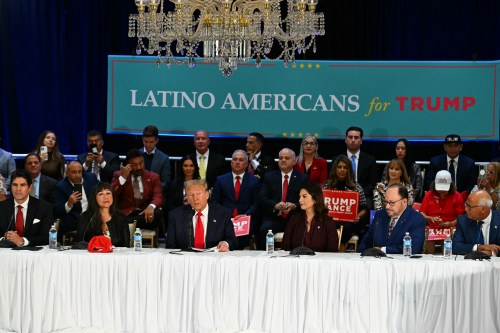







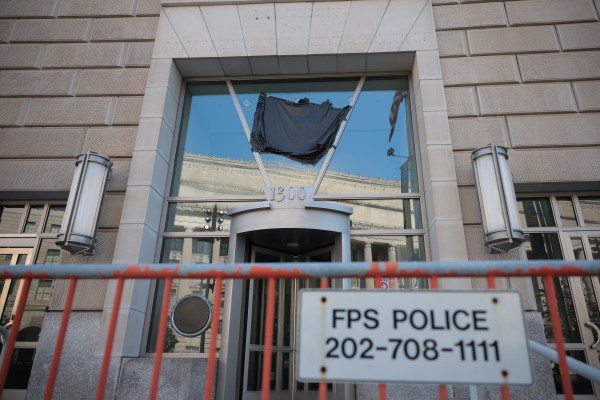
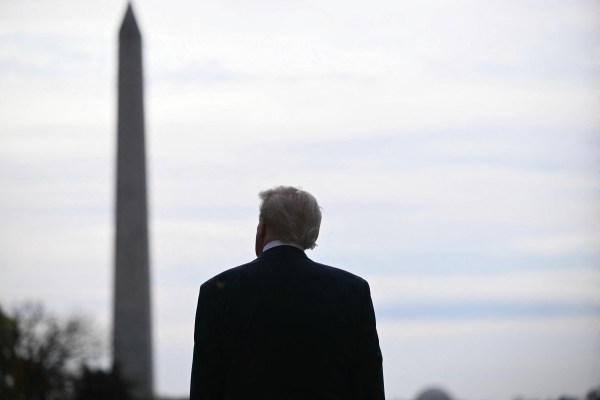
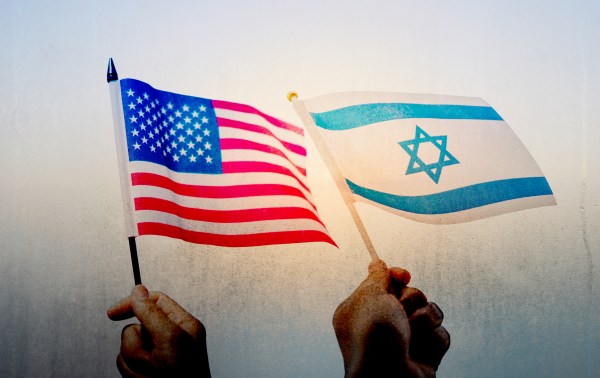

Please note that we at The Dispatch hold ourselves, our work, and our commenters to a higher standard than other places on the internet. We welcome comments that foster genuine debate or discussion—including comments critical of us or our work—but responses that include ad hominem attacks on fellow Dispatch members or are intended to stoke fear and anger may be moderated.
With your membership, you only have the ability to comment on The Morning Dispatch articles. Consider upgrading to join the conversation everywhere.